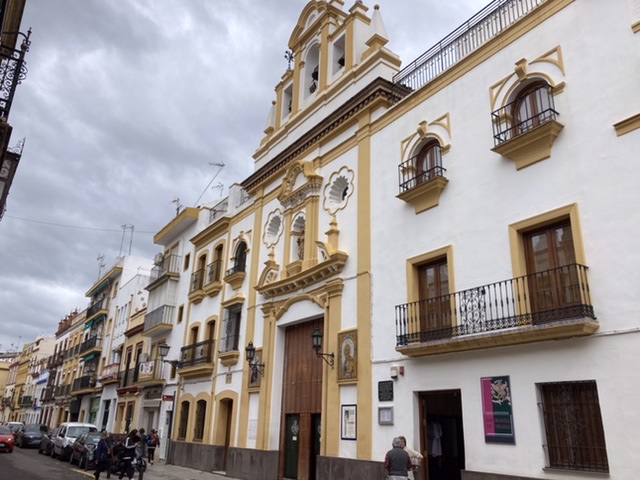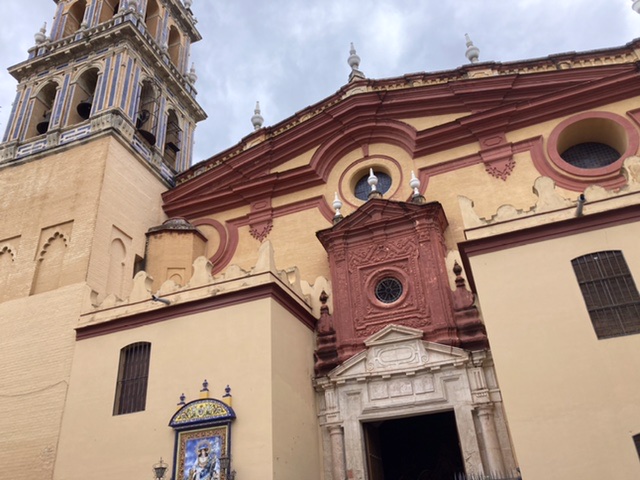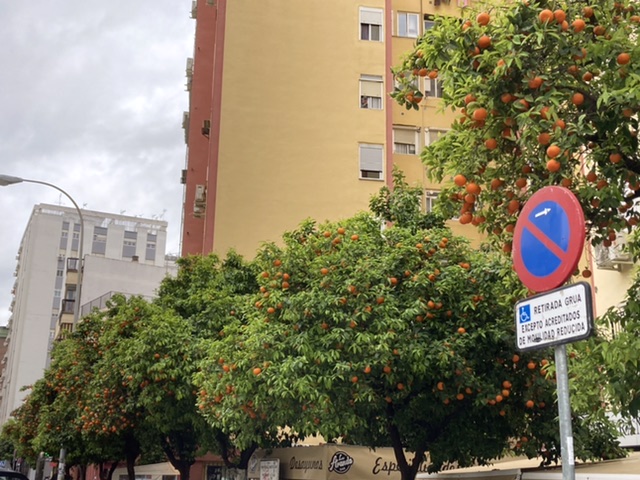Same story all over the world in cities with rivers. The city is built on one side of the river, and the gentry settle there. The poorer classes, or perhaps the ethnic minorities, settle on the other bank, and have to trudge over the river each day to get to their work. Nobody wants to live on the other side of the river, and you can’t give away the land. Eventually, when the prices on the city side get out of hand, people gaze wistfully at the decaying and crammed accomodation on the other bank, and this phenomenon that we call ‘urban renewal’ starts. Not long after, houses on the wrong side of the river are chic, expensive, and hard to come by.

Well, it happened here in Seville too. The ‘other’ side of the river is the neighbourhood known as Triana – once the home of the poor and marginalised – now the most expensive part of the city. Lots of really old buildings, like the church that Ferdinand Magellan and his whole crew prayed in and asked blessings before leaving to find a way from Europe across the Atlantic, around the bottom of South America through what is now known as the Straits of Magellan, across the Pacific, and eventually arriving at the East Indies, thereby opening up a lucrative trade route. Whilst Magellan was killed in the Philippines, the remaining crew kept going and eventually became the first known sailors to completely circumnavigate the globe. Seems Magellan thought the journey to the East Indies would only take 3 or 4 days!

We spent the day wandering the streets and alleys of Triana, admiring the old buildings and architecture, many of which bore plaques commemorating their 500th birthday. Poignant was the catholic church with candles in its windows, built on the spot where the victims of the Spanish Inquisition were killed and hung on the wall as a warning to the gentry on the other side of the river.
You’ve no doubt heard of Seville oranges, and probably bought them at home. Well, they are aptly named. Instead of planting banksias and gums in the nature strips of houses here, they plant orange trees. There are thousands of them, and millions of oranges just fall to the ground each year. Nobody bothers with them, but when one bounced in front of us, we picked it up and took it home for afternoon tea. Quite bitter, but very juicy.

Tea at a tapas bar having something unpronounceable.